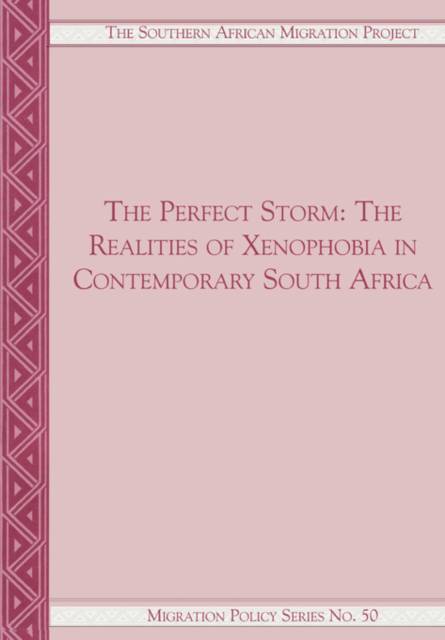
- Afhalen na 1 uur in een winkel met voorraad
- Gratis thuislevering in België vanaf € 30
- Ruim aanbod met 7 miljoen producten
- Afhalen na 1 uur in een winkel met voorraad
- Gratis thuislevering in België vanaf € 30
- Ruim aanbod met 7 miljoen producten
Zoeken
Omschrijving
In late 2006 SAMP undertook a national survey of the attitudes of the South African population towards foreign nationals in the country. The data from this survey allows us to analyze the state of the nation's mind on immigration, immigrants and refugees in the period immediately prior to the recent upsurge of xenophobic violence in South Africa. By comparing the results with those of previous surveys conducted by SAMP in the 1990s, we are also able to see if attitudes have changed and in what ways. Are they better now than they were in the days that prompted the South African Human Rights Commission to set up its Roll Back Xenophobia Campaign and partner with SAMP in a study of immigration, xenophobia and human rights in the country? Has xenophobia softened or hardened in the intervening years? Are xenophobic attitudes as widespread and vitriolic as they were then? How many South Africans were poised, in 2006, to turn their negative thoughts about foreign nationals into actions to "cleanse" their neighbourhoods and streets of fellow Africans?
Specificaties
Betrokkenen
- Auteur(s):
- Uitgeverij:
Inhoud
- Aantal bladzijden:
- 68
- Taal:
- Engels
- Reeks:
Eigenschappen
- Productcode (EAN):
- 9781920118716
- Verschijningsdatum:
- 20/07/2008
- Uitvoering:
- Paperback
- Formaat:
- Trade paperback (VS)
- Afmetingen:
- 170 mm x 244 mm
- Gewicht:
- 122 g

Alleen bij Standaard Boekhandel
+ 41 punten op je klantenkaart van Standaard Boekhandel
Beoordelingen
We publiceren alleen reviews die voldoen aan de voorwaarden voor reviews. Bekijk onze voorwaarden voor reviews.











